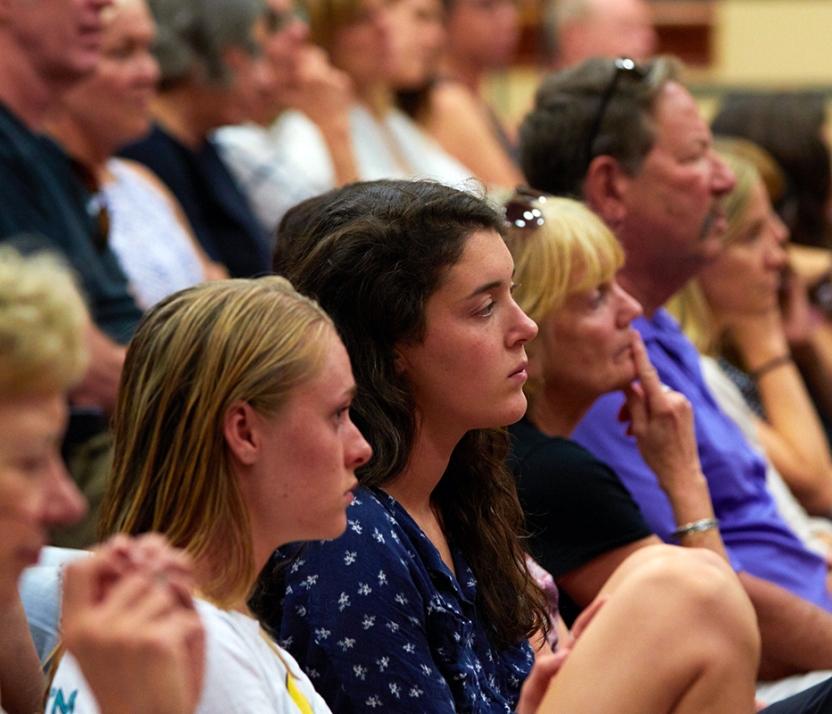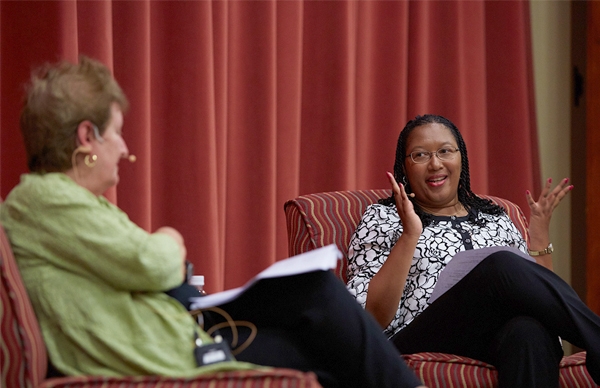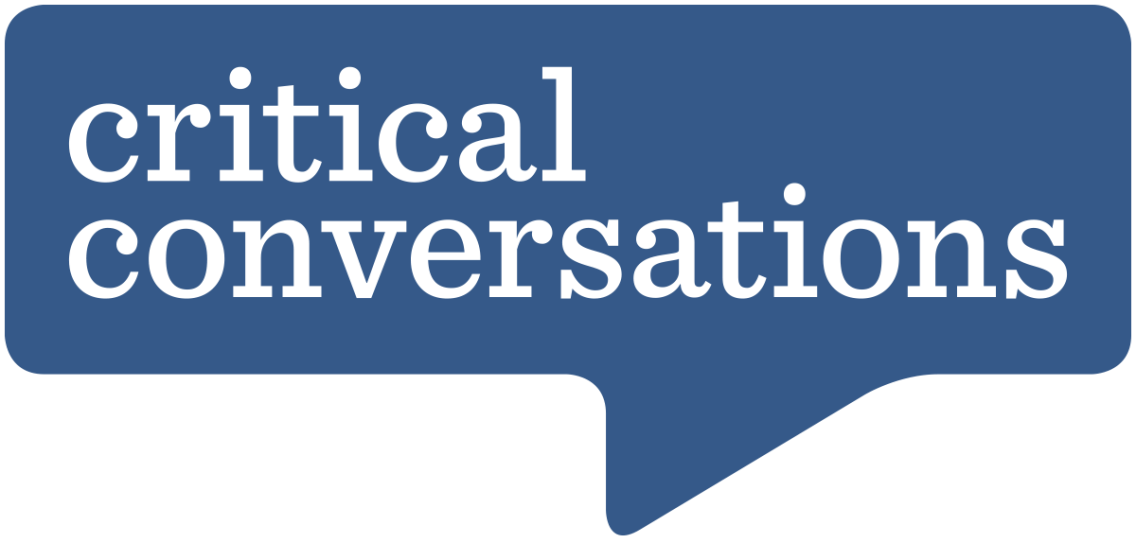Taking Stock of Modern Feminism

MIDDLEBURY, Vt. – Leading feminist writers and scholars Katha Pollitt and Janell Hobson met at Middlebury College on Sept. 27 to engage the question, What can feminism speak to in 2017?
The answer, from Hobson and Pollitt: Just about everything. In a discussion that ranged from Donald Trump and Twitter trolls to Beyonce and bell hooks, Hobson and Pollitt outlined a modern feminist movement that encompasses traditional feminist causes — such as reproductive rights and equal pay — while more broadly interpreting what qualifies as women’s issues.
“It’s hard to think of an issue that doesn’t affect women,” Pollitt said. Clean water, decent healthcare, disability rights, elder care, cyber security — the list went on. The question isn’t what is a feminist issue, but what isn’t — and, wondered Pollitt, “if everything is a feminist issue, do we risk spreading ourselves too thin?”
Hobson is an associate professor of Women’s, Gender, and Sexuality Studies at the University at Albany, State University of New York. The author of two books, she also writes and blogs for Ms. magazine. Pollitt writes the award-winning column “Subject to Debate” for The Nation magazine; her latest book is Pro: Reclaiming Abortion Rights.
Both Pollitt and Hobson pinpointed priorities within the movement. For Pollitt, politics took center stage.

Janell Hobson, a professor at the University at Albany, makes a point on stage with feminist writer Katha Pollitt during their panel discussion at Wilson Hall.
“We have to take back the government, because no matter how great the feminist movement is, and no matter how intersectional it is, and how refined our ideology is, and how activist we are, we are not going to make progress as long as Republicans are in charge of the government. They oppose everything that the feminist movement stands for,” said Pollitt.
Hobson called repeatedly for feminism to speak to the most marginalized communities and individuals: women of color, queer and transgender people, the poor.
The two broadly agreed on most issues — even as they nipped at the edges of controversial topics within the feminist movement, like pornography and the Israel-Palestine conflict. Acknowledging that points of disagreement within the feminist movement inevitably exist, Pollitt called for more charity and fewer litmus tests among American feminists. In a similar vein, Hobson said that feminism’s sudden pop culture popularity, as taken up by icons like Beyonce and Emma Watson, is only a good thing for the movement.
“When Beyonce stands in front of a neon-lit ‘FEMINIST’ sign at the VMAs on MTV, to me the debate is over,” said Hobson. “We claim her. Next.”
As the discussion wore on, talk turned to a particularly complicated issue: What happens when women vote against feminist interests? Why did 53 percent of white women voters cast their ballots for Trump, despite public displays of misogyny and boasts of groping and sexual assault? Why, Hobson wondered, did many in the black community distrust a white woman?

“I did watch how Hillary Clinton, by virtue of being a white woman, was distrusted [among people of color],” said Hobson. “How do we unpack that? It does go back to the issue of, can women unite across races, across classes, across nationhood? … What does it mean that not enough of us trusted Hillary Clinton enough to come out and vote for her?”
One student in the audience pushed back as the question of politics bubbled up, accusing the panelists of almost “criminalizing” the women voters who supported Trump.
“If we’re talking about feminism as an all encompassing ideology that encompasses views from all women — from marginalized women, from discriminated women, from women of color, poor women, old women — I think that Republican women to some extent need to be included in this debate,” she said.
At this, Hobson remarked that the conservative women she’s known to embrace feminist ideologies have, with time, become progressive — to chuckles from several in the audience.
“I remember the Republicans of my youth, and now they seem like they’re practically communists compared to Republicans of today,” said Pollitt. “I think that to vote for a sexual molester who said ‘blood coming out of her wherever,’ and ‘Rosie O’Donnell looks like a fat pig,’ and all the rest of it, you have to be able to overlook a lot about what Donald Trump thought about women.”
The discussion was the first in this year’s “Critical Conversations” series, designed to explore different philosophical, intellectual, and ideological perspectives. The event was presented with support from the President’s Office, the Program in Gender, Sexuality & Feminist Studies, and the Women’s Resource Center at Chellis House.

